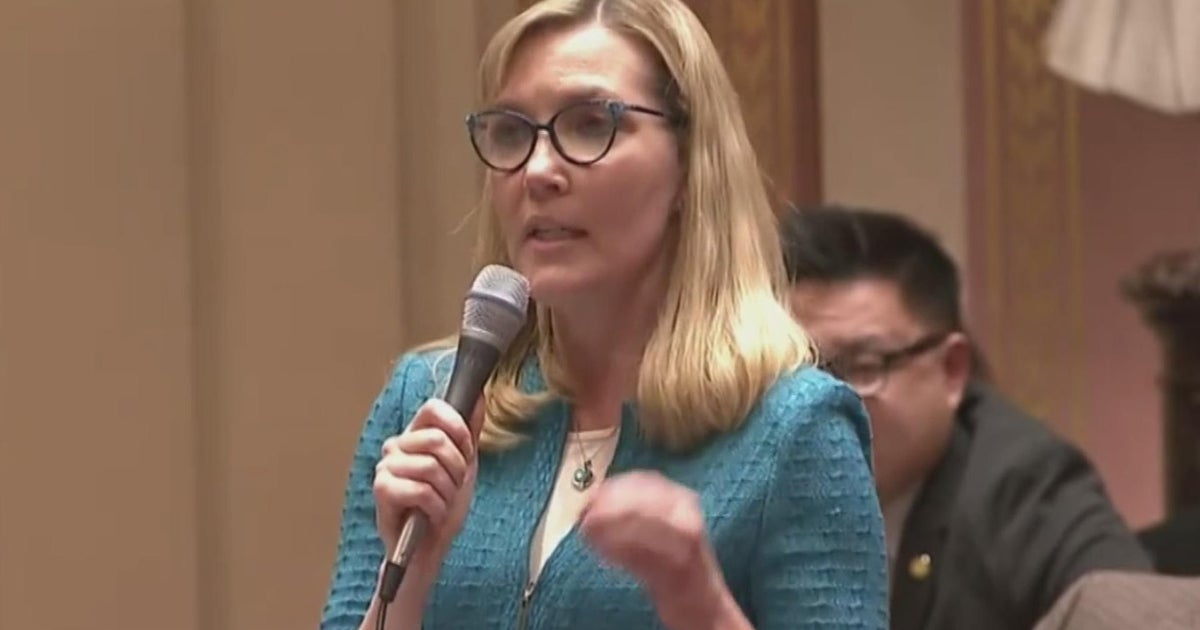$1.87B Surplus Estimate Sets Debate Over Tax Cuts, Spending
ST. PAUL, Minn. (AP) — A near-doubling of Minnesota's projected budget surplus to $1.87 billion had Gov. Mark Dayton pledging new spending for education Friday, while the leader of majority House Republicans suggested at least half be set aside for tax cuts.
Their responses to the benchmark economic report provided a clear view of competing priorities as they, along with a Democratic-led Senate, craft a new two-year budget. The enormity of the surplus also put Dayton's long-term transportation plan in further peril because Republicans effectively ruled out the gas-tax increase at its core.
The surplus — calculated using a raft of economic data compiled by state finance officials — is expected to accrue over the next 29 months and is among the largest on record in Minnesota. Stronger-than-expected growth projections, rising worker wages and surging consumer confidence contributed to the dramatic improvement, according to the report from the Department of Minnesota Management and Budget.
Dayton, a second-term Democrat, said lawmakers shouldn't assume the upward trend will last indefinitely and argued the state must position itself when times are good instead of deeply cutting taxes.
"I'd rather see us invest the money from our collective good fortune in a collective better future for all of us and for our kids and grandkids," Dayton said.
To that end, he wants more than $150 million devoted to public colleges and student financial aid, both to hold down to undergraduate tuition and foster medical research. He said he also favors funding universal, state-paid preschool programs for four-year-olds and expanded child-protection efforts, and that nursing homes can also expect a lift. He will release a revised budget early in March.
Republican House Speaker Kurt Daudt said nursing homes and schools would be high on the House priority list, as would road construction. But Daudt also set the tax-cut bar high, saying at least $900 million and "probably a lot more than that" should be delivered back to taxpayers in some form of breaks.
"I guess Governor Dayton and the Democrats in the Senate are going have to make the argument to Minnesotans that Minnesotans don't deserve their money back," Daudt said, mentioning possible tax exemptions for veterans and Social Security recipients as well as broader income-tax reductions.
Republicans forcefully called on Dayton and Democrats to ditch a transportation plan that seeks to impose a 6.5 percent fuel sales tax and other fees, describing it as illogical to raise such taxes when the lower per-pump costs are helping drive the state's economic gains.
Deputy Senate Majority Leader Jeffrey Hayden said the proposal should remain on the table to provide a robust, dependable and dedicated stream of money for roadwork.
The surplus is substantially more than the $1 billion estimated in December. The forecast revenue would be enough to support a roughly $42.5 billion two-year budget.
It's the latest in a string of strong economic reports for Minnesota, where the unemployment rate is well below 4 percent, and income and sales tax collections have steadily picked up steam. The boost was fed partly by faster wage growth and a run of low fuel costs, which left more money in household budgets. A stronger U.S. dollar also helped make imported goods cheaper to buy and Minnesota's exports more lucrative, according to the report.
Minnesota has also retired its IOUs and stashed away another $1.3 billion into rainy-day reserves.
"Over the last few years we have righted the ship," said state budget commissioner Myron Frans, who added notes of caution about potential inflation and global economic worries knocking things off track.
Groups lobbying for money for particular programs pounced on the positive news. A collection of Greater Minnesota cities renewed a pitch for spending on broadband Internet expansions and job-training programs. The National Federation of Independent Businesses said the state could now afford to give small businesses tax relief. And a coalition of groups pushing a 5 percent reimbursement rate increase for long-term caregivers said the improved budget situation should elevate their request, which would affect 90,000 people.
"We simply must have the resources to pay our caregivers a good wage and assure quality care," campaign spokesman Bruce Nelson said.
(© Copyright 2015 The Associated Press. All Rights Reserved. This material may not be published, broadcast, rewritten or redistributed.)



